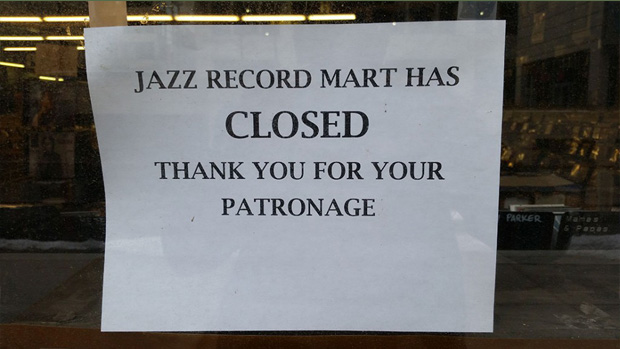
Bob Koester, 83, is the founder of one of the greatest one-two punches in American music: the Delmark Records label and the Jazz Record Mart, a Windy City retail outlet that carried the music Koester recorded, jazz and blues with roots in the South and blossoms around the globe.
The Rolling Stones are rightly the World’s Greatest Rock and Roll Band (and will be long after Mick and Keith have joined Brian Jones on the other side), Elvis is the King, Prince mopped the floor with the white boys on “While My Guitar Gently Weeps,” and the Jazz Record Mart proclaimed to be the globe’s largest jazz and blues record store.
A place where you could find swing, big band, Cajun, and a hothouse of other vines traceable to the banks of the Mississippi.
A little before noon on February 15 this year, Koester sold his last records from a brick and mortar (blues and martyrs) retail outlet when he closed the Jazz and Record Mart after nearly 60 years. Koester moved to Chicago in 1958, the year of W.C. Handy’s death.
In 1959, Koester purchased Seymour’s Jazz Mart at 439 South Wabash and went to work. Seymour made easy terms for the then 27-year-old, encouraging him in a keepsake letter to “get going, young fellow.”
The name Jazz Record Mart emerged not long before 1963 (the year of Elmore James’ death) when Koester moved the store to 7 West Grand Avenue. In 1971, inventory was schlepped to North Lincoln Avenue (where Zeppelin’s Robert Plant was a customer) and then to 444 North Wabash in the 1990s.
Its address for the past decade was 27 East Illinois Street. It was there, accompanied by blues producer Dick Shurman who made the introduction, that I met Bob Koester over the summer of 2015. He was wearing a t-shirt sporting the cover of Hoodoo Man Blues by Junior Wells, released on Delmark in 1965, the year Nat King Cole died. To date, Hoodoo Man has sold an estimated 60,000 copies.
Koester, who retained the Delmark label, blamed high rent for the store’s closing. As with many successful businesses established by folks of single-minded passion – be it a rib joint or a record store – Koester’s son is not interested in perpetuating his old man’s life’s work.
The Record Mart name, inventory of vinyl, CDs, cassettes, posters, record bins, and album covers waiting to be glued to cardboard sleeves were purchased by Wolfgang’s Vault, an on-line retailer out of Reno, Nevada, heavy on retro goodies popular with boomers proud to say they saw both Hendrix and Janis.
While Koester had a great eye (and ear) for hidden treasure in other people’s inventories, he was both resistant to and befuddled by the Internet, which businesses like Wolfgang’s Vault have profitably exploited. Just about up to the end, the Record Mart was still mailing out printed catalogs.
It was also a graduate school of music for hundreds of workers who endured Koester’s foul moods in exchange for what they learned under his roof. Many a rehearsal and jam session were held in the back rooms of the various Record Mart stores and a handful of employees went on to start their own record labels. ![]()



1 thought on “Jazz Record Mart Closes: Storied Chicago Landmark Housed the Best Mississippi Had to Offer”